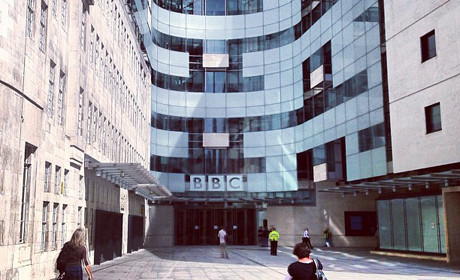
In a speech given this morning at the Science Museum in London, the BBC's director general Tony Hall outlined the broadcaster's vision for the future and how it will adapt to serve current and future audiences worldwide.
Today's paper set out a number of proposals that Hall said "do not mean a bigger BBC", but "do mean a better BBC".
Among the main initiatives is the creation of the Ideas Service, an online platform that will showcase content from the BBC, but also from various cultural institutions across the country, such as museums, festivals and universities.
The broadcaster will also change its radio offering, giving its audience a "personalised schedule of programmes", as well as invest more in expanding the BBC World Service in countries where there is a "democratic deficit in impartial news".
Tony Hall: 'Our voice globally could be so much stronger in the Middle East, Russia and India'.
— Trushar Barot (@Trushar) September 7, 2015
The World Service arm currently produces news in 28 languages across TV, radio and digital.
Radio still has a large audience worldwide, and the service aims to approach each country individually in order to find the best way of serving the audience, whether it's radio, TV in the Middle East or social media platforms in India or Thailand.
In his speech, Hall said people will "continue to enjoy radio and television, as now, over the next decade", but recognised the internet is changing the way in which people consume news and the need for "an open BBC for the internet age".
"It is perfectly possible that by the middle of the next decade [the internet and mobile devices] become the main route to what the BBC does.
"So for the next 10 years, we will need to ride two horses - serving those who have adopted the internet and mobile media, while at the same time making sure that those who want to carry on watching and listening to traditional channels continue to be properly served too."
He announced that the BBC will partner with local newspapers to strengthen the connection between local reporting and the wider industry.
This is part of a larger initiative to help "secure the future of local newspapers and democratic reporting" by producing content that will be "shared, jointly created and backed by licence fee funding".
Recently, the broadcaster began running a consultation looking at ways to develop a more collaborative relationship with hyperlocal media and community bloggers.
One of the initiatives, called Local Live, has been running in a number of pilot areas such as Birmingham and Derby, and focuses on showcasing both BBC content and reporting produced by local papers through an online newsfeed.
The BBC will also push forward its website, ensuring it has a "stronger focus" on online broadcast content.
The website was last redesigned in March, when it became fully responsive on all devices to recognise that between 50 and 60 per cent of its audience came from mobile.
Other initiatives announced today include "a transition from rolling news to streaming news" through a new product called BBC Newstream, as well as finding ways to showcase and support new talent in the music industry and adding external content in the BBC iPlayer offering.
The second paper outlining the future of the BBC will be published later this month and will include proposals on the future of BBC production and BBC Worldwide.
In October, a third paper will aim to provide answers to the questions asked by the Government earlier this summer, as part of the BBC Green Paper and a fourth and final paper will be published later in the year, looking at the BBC's money saving proposals.
Big q for #BBC is how you hold the line on an open platform strategy when the mobile web is increasingly walled off...
— emily bell (@emilybell) September 7, 2015
Free daily newsletter
If you like our news and feature articles, you can sign up to receive our free daily (Mon-Fri) email newsletter (mobile friendly).









